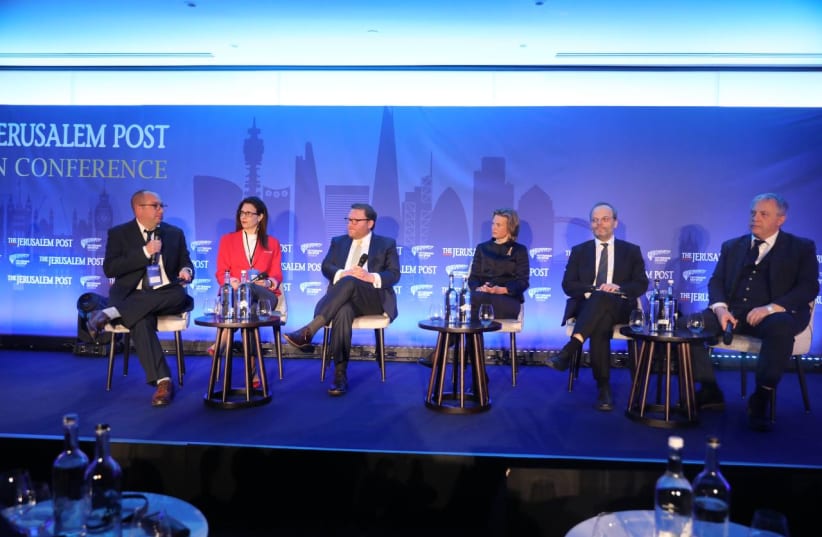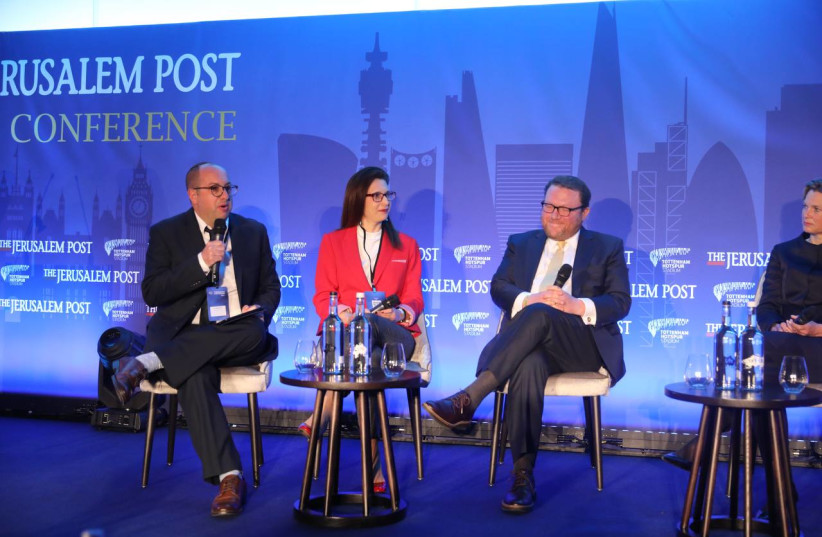Russian President Vladimir Putin has engaged in Holocaust distortion, a form of antisemitism, US Deputy Special Envoy to Monitor and Combat Antisemitism Aaron Keyak said Thursday during a panel discussion at The Jerusalem Post London Conference.
For more panels and interviews from The Jerusalem Post London Conference, click here >>
Putin has said Russia’s war in Ukraine is meant to “denazify” the country.
“Holocaust distortion can be a form of antisemitism,” Keyak said. “When you distort the Holocaust, you are distorting the memory of six million Jews.”
“It seems clear to [many] that this is a lie,” he said. “But it is actually gaining steam on social media and elsewhere. That has ramifications for the conflict in Ukraine and for what it means for understanding the Holocaust and what Nazis really are.”
The Ukraine-Russia war is “not going to turn out well for the Jews of any of those countries,” he added.
German Government Commissioner for Antisemitism Felix Klein said Holocaust distortion is a crime in Germany. The comparisons of COVID-19 vaccine mandates to the Holocaust are a “terrible trivialization,” he said.
Germany is experiencing a post-war high rate of antisemitic crimes, many of which are committed online, Klein said.
At the same time, he said it was heartening that “75 years after the Holocaust, Jews seek refuge in Germany” from the war in Ukraine.
“Pressure is the only thing we have,” he added.
Racheli Baratz, head of the World Zionist Organization’s Department for Combating Antisemitism, lamented the spread of antisemitism online in relation to the war.
“Social media is our worst enemy,” she said. “The Russia-Ukraine war is increasing antisemitism on both sides... We cannot run away from it, and we are not seeing a solution to this problem.”
During the COVID-19 pandemic, online antisemitism in Europe increased sevenfold, European Commission Coordinator on Combating Antisemitism and Fostering Jewish Life Katharine von Schnurbein said, adding that the Holocaust-distorting “denazification” claim is one part of it.
“Once it’s out there, it is very difficult to turn back the wheel,” she said.
Several of the panelists expressed frustration with social-media companies’ insufficient work to combat antisemitism on their platforms.
“I’m sick of all their excuses, especially those with huge budgets,” said Lord John Mann, advisor to the British government on antisemitism.
Mann said he would be leading a new task force of senior MPs examining Jewish life in universities in the UK.
“We are listening to Jewish students,” he said.
Von Schnurbein discussed initiatives in the EU, such as a unanimous decision this month by member states to adopt strategies to fight antisemitism.
“Once we have it on paper, we need to implement it,” she said. “So far, we do not see a real change for the Jewish community.
However, the recognition of the problem of antisemitism and that the European Commission has taken action “gives more confidence,” Von Schnurbein said. “We want Jews to see their future in Europe and feel secure and that their issues are addressed in the education system, in the prosecution of antisemitism cases and so on.”

